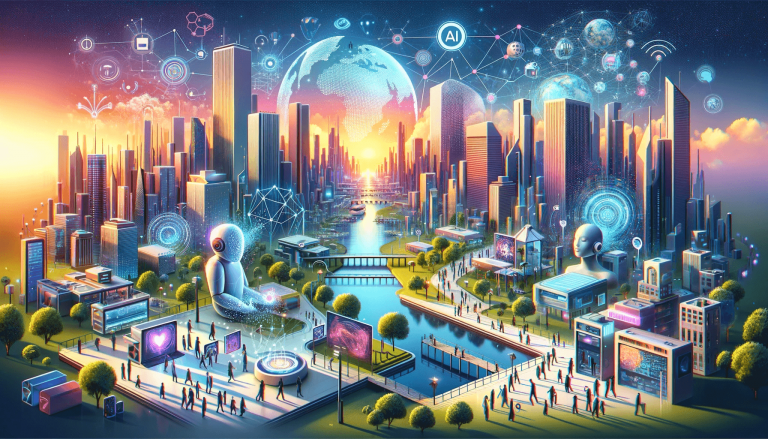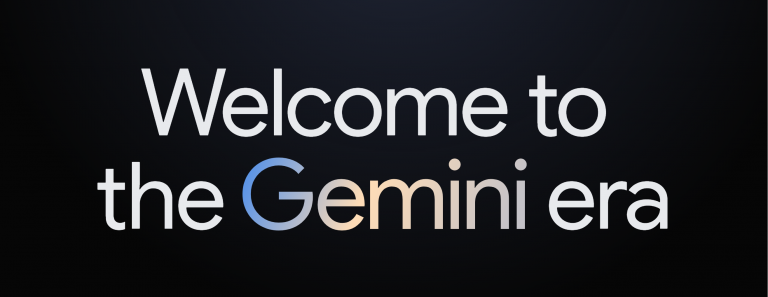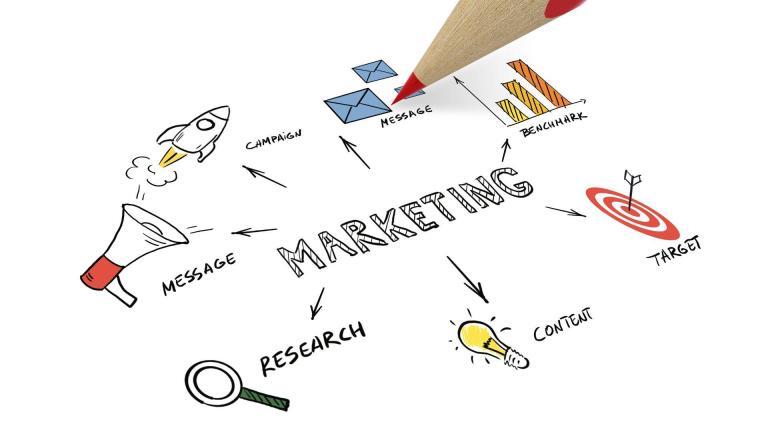You are on the threshold of a new era in which artificial intelligence (AI) will play an increasingly dominant role in our working lives. With the article “The Future of Work: How AI is changing our jobs and what skills we need,” we give you insights into the effects of this technological revolution on various professional fields and show you which skills will be crucial in the working world of tomorrow. We not only limit ourselves to presenting the new technologies, but also consider the associated challenges and potential. Get excited for a journey into the future of work, where AI is not the enemy but a tool for efficiency and progress.

Contents
ToggleUnderstand what artificial intelligence is
Definition of AI
Artificial intelligence (AI) is a branch of computer science that aims to develop machines that have human-like abilities such as learning, problem solving, perception, speech recognition and visual recognition. Visual recognition, a crucial aspect of AI, enables machines to interpret and process visual information such as images, shapes or patterns.
Types of Artificial Intelligence
There are two main types of AI:
- Weak AI: This is aimed at specific tasks, such as speech recognition or visual recognition in limited contexts. An example of this is the facial recognition software used in smartphones to identify users.
- Strong AI: In contrast, strong AI strives to master and perform any mental task a human can do. This includes the ability to process complex visual information and draw conclusions from it, much as a human would in various situations.
In this context, visual recognition is not only limited to simple pattern recognition, but also includes understanding complex scenarios and contexts, which is a key element of advanced AI systems.
Further examples of the use of AI
In many ways, AI is already part of our everyday lives. Examples of this include personal assistants like Siri and Alexa, chatbots on websites, recommendation systems on platforms like Netflix or Amazon, and self-driving cars.
How AI is changing our jobs
Automation of routine tasks
AI can handle many of the monotonous and repetitive tasks currently performed by humans. This allows workers to have more time for more creative and strategic tasks, resulting in a more productive work environment.
Change in demands on employees
As AI advances, the requirements placed on employees will also evolve. Because of this, the skills workers need to thrive in this new era are becoming increasingly important.
Industries affected by AI
Healthcare
In healthcare, AI is revolutionizing medical diagnostics and treatment. Through advanced algorithms that detect diseases and analyze patient data, AI enables personalized medicine and more accurate prognosis. AI also supports the development of new drugs and therapies by efficiently evaluating complex biological data.
Also read our article about: ARTIFICIAL INTELLIGENCE IN MEDICINE: HOW AI IS REVOLUTIONIZING DIAGNOSIS AND TREATMENT
production
In the manufacturing industry, AI helps increase efficiency and quality. It minimizes downtime and errors through precise algorithms for quality control and preventive maintenance. AI-based systems also improve supply chain optimization by automating demand forecasting and inventory management, resulting in more flexible and responsive production planning.
Transportation and logistics
In the area of transport and logistics, AI enables more efficient and safer mobility. AI-driven systems optimize delivery routes and improve traffic flow analysis, leading to a reduction in traffic congestion and environmental impact. AI also promotes the development of autonomous vehicles, which have the potential to fundamentally transform transportation services and increase road safety.
Positive effects of AI on the world of work
efficiency
improvement
By automating routine tasks, AI can help increase operational efficiency in many industries.
Reducing errors and accidents in the workplace
AI can help reduce errors and accidents in the workplace by enabling accurate predictions and automated controls.
Opening up new career opportunities
Although AI may make some jobs obsolete, it will also create many new career opportunities in sectors such as data analytics, machine learning and AI ethics.
Disadvantages and challenges of AI in the job
Job loss due to automation
A major disadvantage of AI is that it could replace some jobs with automation, which could lead to job losses.
Ethics and privacy concerns
The use of AI also raises concerns about ethics and data protection, as algorithms are often based on personal data.
Loss of human abilities
Another concern is that reliance on AI could result in human capabilities being lost or underdeveloped, which could have long-term impacts on society.
The role of employees in a working world dominated by AI
Human judgment and decision making
Despite advances in AI, human judgment and decision-making remain crucial. AI can analyze data and recognize patterns, but it still requires human knowledge and experience to make the best decisions.
Human judgment and decision making
Despite advances in AI, human judgment and decision-making remain crucial. AI can analyze data and recognize patterns, but it still requires human knowledge and experience to make the best decisions.

Creativity and innovation
Creativity and innovation are another area where humans have superiority over AI. People are able to solve complex problems, find creative solutions and generate new ideas - qualities that are necessary for the advanced development of companies.
Interpersonal skills
Human interaction and interpersonal skills are another area where AI is limited. The ability to recognize and respond to emotions, build trust, and communicate effectively are core components of human interaction in the work environment that AI cannot replicate.
What skills we need in the future
AI skills
It is becoming increasingly important to have knowledge and skills in dealing with AI. This may include understanding how to interact with AI systems, writing and understanding algorithms, or understanding the impact of AI on society and ethics.
Problem-solving skills
In a workplace dominated by AI, problem-solving skills are crucial. The ability to identify and solve complex problems will be increasingly in demand, especially as AI takes over solving routine problems.
Adaptability and lifelong learning
Given the rapid changes brought about by the introduction of AI, workers must be adaptable and willing to be lifelong learners. The ability to learn and adapt quickly to new technologies and changes in the workplace will be among the most important skills workers will need in an AI-dominated workplace.
Impact of AI on the training and education landscape
New courses and degree programs for AI
With the rise of AI, educational institutions will increasingly offer new courses and degree programs aimed at developing skills and knowledge in the field of AI.
Importance of continuing education and retraining
Upskilling and reskilling workers will become even more important to prepare the workforce for the changes brought about by the introduction of AI. This could include training in specific AI skills or more general training in areas such as critical thinking and problem solving.
Digital learning platforms and AI-supported learning tools
Digital learning platforms and AI-supported learning tools are increasingly being used to make education and training more efficient and individual.
The role of government and politics in the AI revolution
Legislation and regulation of AI
Governments and political leaders will play an important role in shaping the framework for AI through legislation and regulation. This may include privacy regulations, ethics standards, or workplace safety laws.
Promoting AI research and development
Governments can also help promote AI research and development by providing funding and creating favorable conditions for innovation and growth.
Protecting workers from the negative effects of AI
Governments must also take measures to protect workers from the potential negative impacts of AI. This could be through retraining programs, unemployment insurance or other forms of social protection.
FAQ
Will AI replace human jobs?
It is likely that AI will replace some jobs, particularly those that involve routine or predictable tasks. However, it is also likely that AI will create new jobs and career opportunities and that most jobs will be transformed by AI in some way, but not completely replaced.
How can workers adapt their skills to an AI-dominated workplace?
Workers can adapt their skills by learning and upskilling in areas such as data analysis, AI programming or critical thinking. Additionally, they can develop their interpersonal and communication skills, which will continue to be important in an AI-dominated workplace.
What can companies do to prepare their employees for the introduction of AI?
Companies can offer training programs and continuing education opportunities to prepare their employees for AI adoption. They can also ensure that they provide clear communication and support for their employees during the transition to AI.
